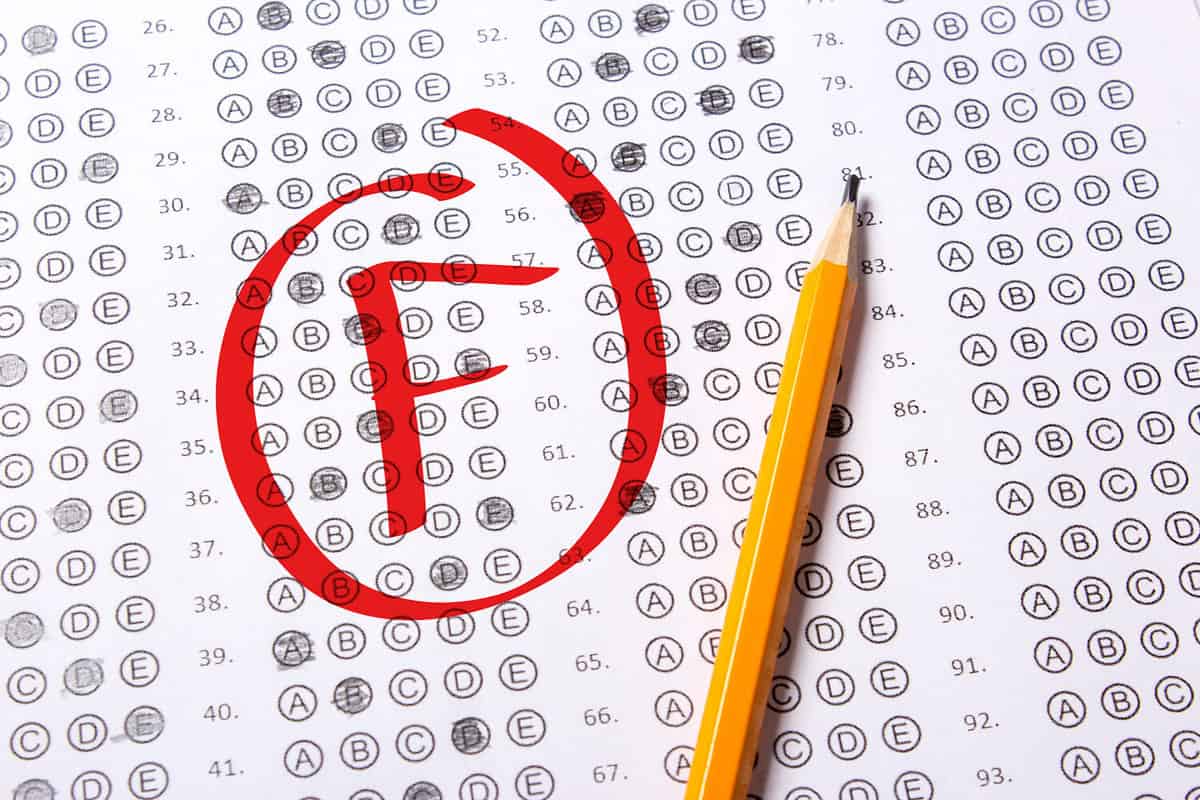From preschool to senior year of high school, you constantly worry about if your child is struggling in school. It’s so much more than intellectual. There’s the social, emotional, and mental aspect of thriving in an environment that can be overwhelming and all-consuming. The truth is that most traditional public schools operate in a way that benefits students who have long attention spans, strong emotional control, and the ability to score high on tests. Unfortunately, that’s not the reality for most kids.
Studies show that almost half of Americans believe the public education system is headed in the wrong direction. Thirty percent are unsure and only 16% feel schools are headed in the right direction. Most point to the lack of time spent studying core subjects, but there is evidence that political beliefs affect the responses.
More than half of Americans believe schools don’t have the resources or funding they need, while 54% feel teachers bring their social or political views into the classroom. Almost 70% of Americans feel there isn’t enough time spent on subjects like social studies, science, math, and reading.
This is good information when it comes to identifying problems that need to be addressed in schools, but is there practical application when it comes to the individual student? For decades, schools worked to find a model that included all types of learners, not just those who listen to lectures and test well. Kids with untraditional learning styles may believe they aren’t intelligent enough for school because the curriculum hasn’t changed enough to meet their needs.
How does this apply to you as a parent? At the most basic level, you want to watch for signs that your child is struggling in school. There are a million reasons things could go wrong, but you don’t know what they are if you don’t watch for the signs. To help you and your student, we’ve identified five clear signs that a student is struggling at any age.
1. Anxiety or Worry

©Studio Romantic/Shutterstock.com
Your child may start school with anxiety or worry, or it may come on out of nowhere. It manifests in different ways, including:
- Temper tantrums
- Refusal to go to school
- Difficulty completing tasks or focusing
- Racing heart
- Sweating
- Stomachaches
Don’t ignore your child if they suddenly develop anxiety about attending school. They may be stressed about an upcoming assignment, troubled by problems with friends, or dealing with a learning disability. It’s frustrating when kids come home from school sick all the time, but if your child suddenly has headaches and stomachaches with no identifiable illnesses, they may have anxiety.
Your student’s age affects how you deal with academic anxiety. You may want to work with a therapist or qualified mental health specialist to develop some coping mechanisms if your child is struggling in school such as:
- Find the trigger or root cause
- Create routines so your child doesn’t face unexpected problems
- Develop communication strategies so your child shares their problems and worries with an adult
- Make accommodations and changes in the classroom when necessary
2. Changes in Attitude About School

©DimaBerlin/Shutterstock.com
We’ve dealt with situations where kids went from loving school to fighting it every day. One specific child woke up early for six years because they were so excited about school, only to become moody and depressed about attending at the end of sixth grade. As we worried about what could possibly be happening, our biggest concern was that the behavior would continue.
After some difficult, emotional discussions, we uncovered some of the problems. Our student was finishing work on time and was bored at times. The class was disrespectful to the teacher (it was her first year) and loud, and it made the student uncomfortable. Finally, the student was simply bored with a K-6 model and ready to move into a junior high/middle school-type schedule.
There’s only so much you can do if your child suddenly changes their attitude about school, but don’t take it lightly. There may be more going on than you realize. Talk to your child or have them visit with an administrator or counselor to uncover if there is any bullying or something that makes your student feel unsafe. Offer quiet games, puzzles, or books to read if your student is finishing their work early. Fidget toys can also help to ease anxiety if the environment feels threatening or out of control.
Most importantly, let your child know they can take a break from the classroom if it’s too much. Find a safe space in the school where they can rest momentarily and reset their emotions.
3. Concerns From Teachers

©Africa Studio/Shutterstock.com
Teachers in the United States are notoriously overworked and underpaid, but that doesn’t stop them from caring about their students. Most will notice if a student is struggling, and reach out before the problem becomes too much. If you don’t have regular discussions with your child’s teacher (on the phone, in person, or by email), now is a good time to start. It doesn’t have to take a lot of their time or yours, but you can head off bad habits quickly.
It’s hard to hear an administrator or teacher say that your child is having problems but keep an open mind. In most cases, these are people who want to help your child succeed, and working with them is the best way to get them help. Listen to them and brainstorm ways to improve your child’s experience. When possible, make your child part of the conversation so they feel they have some control over their environment.
4. Poor Grades or Reports

©ADragan/Shutterstock.com
Are you raising an A or B student who suddenly comes home with Cs and Ds? This doesn’t mean your child isn’t smart or their future is ruined. It’s likely a sign that something is going wrong at school that needs to be addressed. This is the time to discuss the issue with your child. Discuss with the teacher why the grades are low. Is the student missing assignments or doing poorly on them?
If they’re not turning things in, they may be unmotivated, anxious, or depressed. If they’re struggling with the content, your approach should be extra help. The first is often an emotional issue while the second is an academic one. Don’t just assume that bad grades mean your child doesn't understand the content, or they aren’t smart enough to handle it.
5. Behavior Problems at School or Home

©Egoitz Bengoetxea/Shutterstock.com
Behavioral problems at home may stem from anxiety or stress about school, and vice versa. If you feel your child’s behavior is problematic enough to need treatment, seek the help of a licensed therapist or medical professional. If the problem is an attitude one, set goals with your student. Discuss ways they can improve their behavior and how you and the teacher can reward them.
While the goal is intrinsic motivation so your kids behave well because they know it’s the right thing to do, this concept is a bit more complicated when they’re young. Until they develop that desire to behave, it’s okay to use a reward system in school and at home.
What Should You Do About It?

©Ushuaia studio/Shutterstock.com
The most important thing you can do is listen. To the teacher, your child, and any other school official involved. Don’t be defensive and call on all your patience when your child is acting out or you have problems with the teacher.
Finally, make sure you are on the same page as the school. If you have bigger concerns about the resources your child needs, it may be time to approach the district. For the most part, most problems can be handled at a school level, but don’t be afraid to advocate for your child if they aren’t getting the help they need.
The image featured at the top of this post is ©stockfour/Shutterstock.com.
